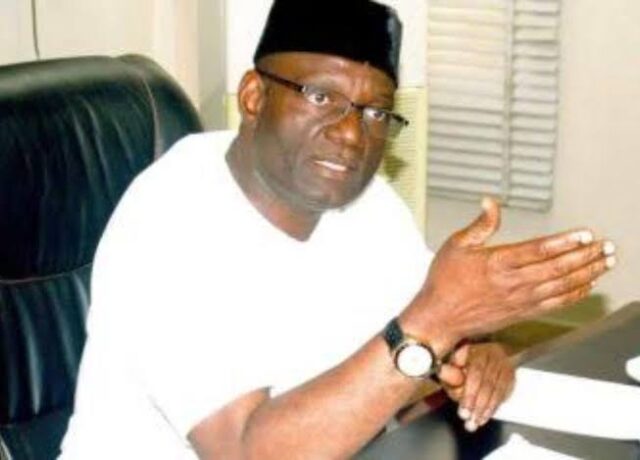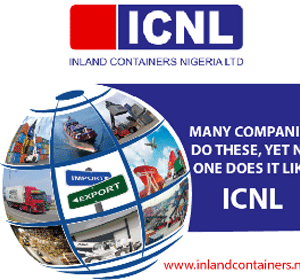The port reforms of 2006 that introduced private terminal operators into the Nigerian port industry created the necessity for a port economic regulator. Prior to the reforms, the Nigerian Ports Authority (NPA) was responsible for port operations and management. After the reforms NPA became a landlord and technical regulator as the port terminals were concessioned to private terminal operators. With NPA as only technical regulator, the need was created for an economic regulator.
It needs to be stated that the port reform was carried out without the necessary regulatory framework, having been hurriedly done by the government authorities. Stakeholders and experts bemoaned the absence of a regulatory framework that would have made provision for a port economic regulator.
The fears and concerns of the port operators and stakeholders soon became manifest as the concessionaires or terminal operators became law unto themselves –engaging in arbitrary charges and multiple tariffs headings and all forms of economic anomalies. They also engaged in selective compliance with the concession agreement they signed with the federal government, like neglecting the provision of holding bays for containers, truck parks, modern cargo handling equipment etc.
Shipping lines/agents who had been in the business of imposing arbitrary charges and tariffs heightened their impunity, mercilessly exploiting Nigerian shippers and consumers. As a result of the outcry over the absence of an economic regulator to check these excesses, the Nigerian Shippers Council was on February 14, 2014 pronounced interim port economic regulator by the federal government. A year later, 2015, the Council was formally declared the port economic regulator.
But all these came with the Council remaining as it was, without any regulatory and enforcement powers. Consequently, the operators the Council was asked to regulate, especially shipping companies and terminal operators, could not respect or recognize its regulatory mandate. And still do not till today. They even took the Council to court to challenge its powers to stop them from imposing arbitrary charges when the council made a move to regulate their tariff increases.
The problem of regulating the economic operations of the port industry has, indeed, been a big challenge to the Nigerian Shippers Council without the necessary legal teeth. Unfortunately, this was not the focus of a recent sensitization programme held recently at Eko Hotel and Suites, Lagos. The event organized by the Federal Ministry of Transportation and the Nigerian shippers Council failed to address the imperative of giving the Council the legal powers for effective economic regulation of the port industry.
The programme did not give attention to the need to amend the enabling laws to give the Nigerian Shippers Council the power to sanction and prosecute operators, institutions and individuals that breach the rules and regulations guiding operations in the port sector. Instead the event was only a sensitization programme meant to remind stakeholders of the functions of the Council –as if the stakeholders were unaware of them.
With the theme: “Port Economic Regulator –NSC in Focus”, the Ministry of Transportation and the Nigerian Shippers Council sought to enlighten the stakeholders and the public on the mandate of Nigerian Shippers Council as the port economic regulator. The programme was chaired by the Permanent Secretary of the FMOT, Magdalene Ajani, who represented the Minister of Transportation.
Service providers, CEOs of regulatory agencies, mariti
The minister, at the event, recalled that the Presidential Order issued in 2015 as well as the Section 3, E, F and J of the Nigerian Shippers Council’s Act empowers the Council to perform the duty of port economic regulator. He said “The Port Economic Regulation order has been provided from various functions and roles of the Council in line with the provisions of Section 3 E, F and J of the Nigerian Shippers’ Council Act 133 Law of the federation 2004.
He added that “The port economic regulator order for the 2015, clearly spelt out the providers of services at the port,” and enjoined the participants to pick the copy of the Nigerian Shippers’ Council Ports Economic Regulator Order 2015.
The minister said he was aware that the Council had faced resistance in the implementation of the regulations at the earlier stages, but that this was resolved with various stakeholders’ meetings and engagements with the concessionaires and other stakeholders who express
Having said all this, the minister again announced that the Nigerian shippers Council was the port economic regulator and enjoined all stakeholders in the maritime industry to give the council the needed cooperation and support in the execution of its mandate.
Frankly speaking, organizing a sensitization programme to remind stakeholders that the Nigerian shippers Council is the port economic regulator is grossly out of place at this time. The appeal to the stakeholders to cooperate with the NSC for the execution of its economic regulation mandate is equally out of place, as it exposes the Council’s lack of regulatory powers. Instead of calling the operators together to appeal for cooperation, the programme ought to have focused on how to get them to comply with the economic regulatory functi
Speaking elsewhere recently, however, the Executive Secretary of the Council/Chief Executive Officer, Emmanuel Jime, stressed the need to amend the enabling law of the NSC in order to empower the Council with sanctioning and prosecuting powers. He said such an amendment will equip the Council with the power to sanction and prosecute institutions and individuals that breach rules and regulations guiding operations in the maritime sector, adding that the powers were necessary to protect stakeholders in the sector from errant operators.
The Shippers Council boss who spoke to the Vanguard newspaper said the Council had to resort to the partnership with the Federal Competition and Consumer Protection Commission (FCCPC) that has the powers under the law in order to drive compliance to rules in the maritime domain which he described as “very very sensitive”.
Jime said, “You cannot regulate unless you are able to sanction for wrong doing; and so the FCCPC is a body that has overall protections for consumers; they also have the ability, not only to arrest, to prosecute, but to sanction.
“We are pushing that in the amendment to the NSC legal instrument which put the Shippers Council in charge of monitoring activities in the maritime sector; that we would be afforded a legal frame work that will allow us to be able to pursue and implement our policies without having to rely on other agencies of government. That, to me, is the vacuum and the lacuna that exists in our legal frame work as at the moment. It’s part of the advocacy of the Shippers Council.”
Going by this expressed concern, one wonders why the Council and the Federal Ministry of Transportation could not make it the focus of their sensitization programme, or pursued the amendment of the enabling laws with vigour. In the meantime, the NSC remains a powerless regulator.








